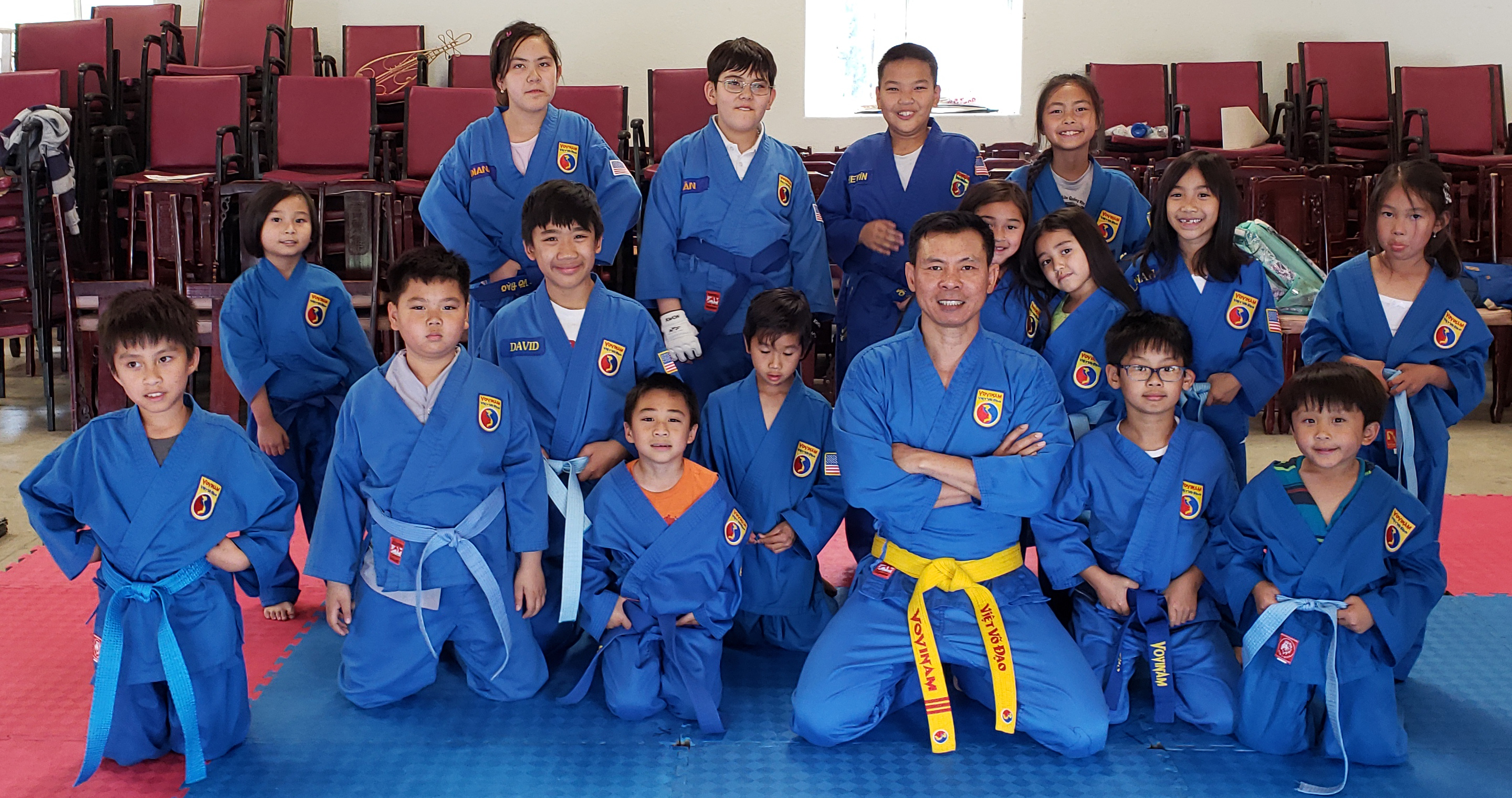GIA ĐÌNH PHẬT TỬ HUYỀN QUANG
The Four Debts of Gratitude, bài số 4 bậc Kiên
The Four Debts of Gratitude
People live in society as "living together", everyone has the closeness and intimate contact with each other because no one can live alone that exist and development. From birth to death, each of us has received a lot of gratitude. The most immediate gratitude is from parent and teacher. Next is a social grace. Furthermore, the Buddhist also inherit a gratitude from Triratna; therefore, we must know how to requite those gratitude wisely and meaningfully.
I. Parental grace:
1. Gratitude:
Parents love children boundlessly. Because of children, parents suffer misery. Since
pregnancy the mother suffers many hardships. By birth, she suffers a painful way, but when
hearing the first cry of her child, she overjoys and forgets the pain. Parents work hard
for a whole life to raise their children. When children are sick, parents are too anxious
and search for treatment. When children grow up, parents assist in marriage and career
building. For parents connected with Buddhism, taking children for education, cultivating
virtue, and guiding on the path to liberation are all ways to express gratitude. The gratitude
is higher than mountains, deeper than the sea, and uncountable. As the folk saying goes, "Grace
of father is as high as the mountain reaches to the sky; grace of mother is as abundant as the waters
of the East Sea."
2. How to requite:
In Buddhism, being dutiful toward parents is a top priority. Buddha taught: "Although one
carries father on one shoulder, and mother on the other, a lifetime of devoted service is still not enough
to repay them." Because their grace is as vast as the sky and sea, we can only repay so much in this life.
Thus, beyond showing filial respect, one should care for the parents, preserve family honor, and lead a morally good life.
Additionally, helping parents to alleviate suffering and encouraging them to visit the Buddha temple, listen to sutras,
and practice the teaching of "doing good and avoiding evil" are also essential.
II. Teacher’s grace:
1. Gratitude:
We expand our knowledge and improve our cultural standards thanks to the tutelage of teachers and the help of friends at school.
Inquiry and discussion with peers help us overcome confusion, and friends provide support during failures and difficult times.
2. How to requite:
To repay our teachers, we must be diligent in our studies and continuously improve our cultural knowledge.
Even after leaving school, learning through books and everyday experiences remains important.
Respect, politeness, regular visits, and offering financial help when needed, along with maintaining a lasting bond, are key.
Moreover, encouraging teachers and friends to learn about Buddhism and practice good deeds contributes to repaying this debt.
III. Social grace:
1. Gratitude:
When discussing the nation, we must honor the heroic martyrs who built and defended it, sacrificing much so that peace could prevail.
We also owe gratitude to a caring government that supports prosperity through education, health, economy, and culture.
Furthermore, the labor of farmers, weavers, tailors, and many others who produce our essentials deserves our thanks.
Simply put, our survival depends on many, and we owe a debt to the nation.
2. How to requite:
As citizens, fulfilling our civic duties and respecting the law is one way to repay society.
Preserving and promoting national culture while appreciating modern beauty, leading a simple life,
and upholding the spirit of solidarity and mutual help, especially in times of need, are essential.
We must also appreciate the efforts of workers who produce food, clothing, and other necessities,
thus contributing to the nation’s overall prosperity.
IV. Triratna’s (a.k.a. Three Jewels) grace:
1. Gratitude:
For Buddhists, another profound grace is that of the Three Jewels. Through the Buddha's life,
we see how Prince Siddhartha left behind a life of comfort in search of truth and liberation from suffering—
a journey that benefits all beings. Although over 25 centuries have passed, his teachings and the legacy
of enlightened Buddhist monks continue to inspire gratitude.
2. How to requite:
Triratna’s grace is immense and cannot be fully repaid in a single lifetime. A sincere heart,
with a deep desire for liberation, offers even a modest return.
Remaining diligent in learning, studying sutras, and applying practical teachings in daily life is crucial.
Understanding that the doctrine serves as a guide—not the ultimate truth—allows us to engage with it properly.
In turn, by upholding the Saddharma, dedicating ourselves to caring for others, aiding in Dharma teaching,
and supporting Buddhist endeavors such as translation and publication of texts, we demonstrate our gratitude.
Conclusion:
As human beings, especially as Buddhists, we must understand the Four Debts of Gratitude and
find meaningful ways to repay these debts as outlined in this lesson. Repayment is not measured by
physical strength, mental capacity, or material wealth, but by the sincere application of these teachings
to everyday life, encouraging others to walk the Buddha's path. This is the most effective and realistic
way to honor and repay the Four Debts of Gratitude.
 CHU NIÊN
CHU NIÊN
 PHẬT ĐẢN
PHẬT ĐẢN
 VU LAN
VU LAN  TRẠI HÈ
TRẠI HÈ  VIỆT NGỮ
VIỆT NGỮ  YOGA
YOGA VOVINAM
VOVINAM GÂY QUỸ
GÂY QUỸ MỞ MẮT
MỞ MẮT  CHÂN CỨNG
CHÂN CỨNG  CÁNH MỀM
CÁNH MỀM  HƯỚNG THIỆN
HƯỚNG THIỆN  SƠ THIỆN
SƠ THIỆN  TRUNG THIỆN
TRUNG THIỆN  CHÁNH THIỆN
CHÁNH THIỆN  BẬC HÒA
BẬC HÒA  BẬC TRỰC
BẬC TRỰC